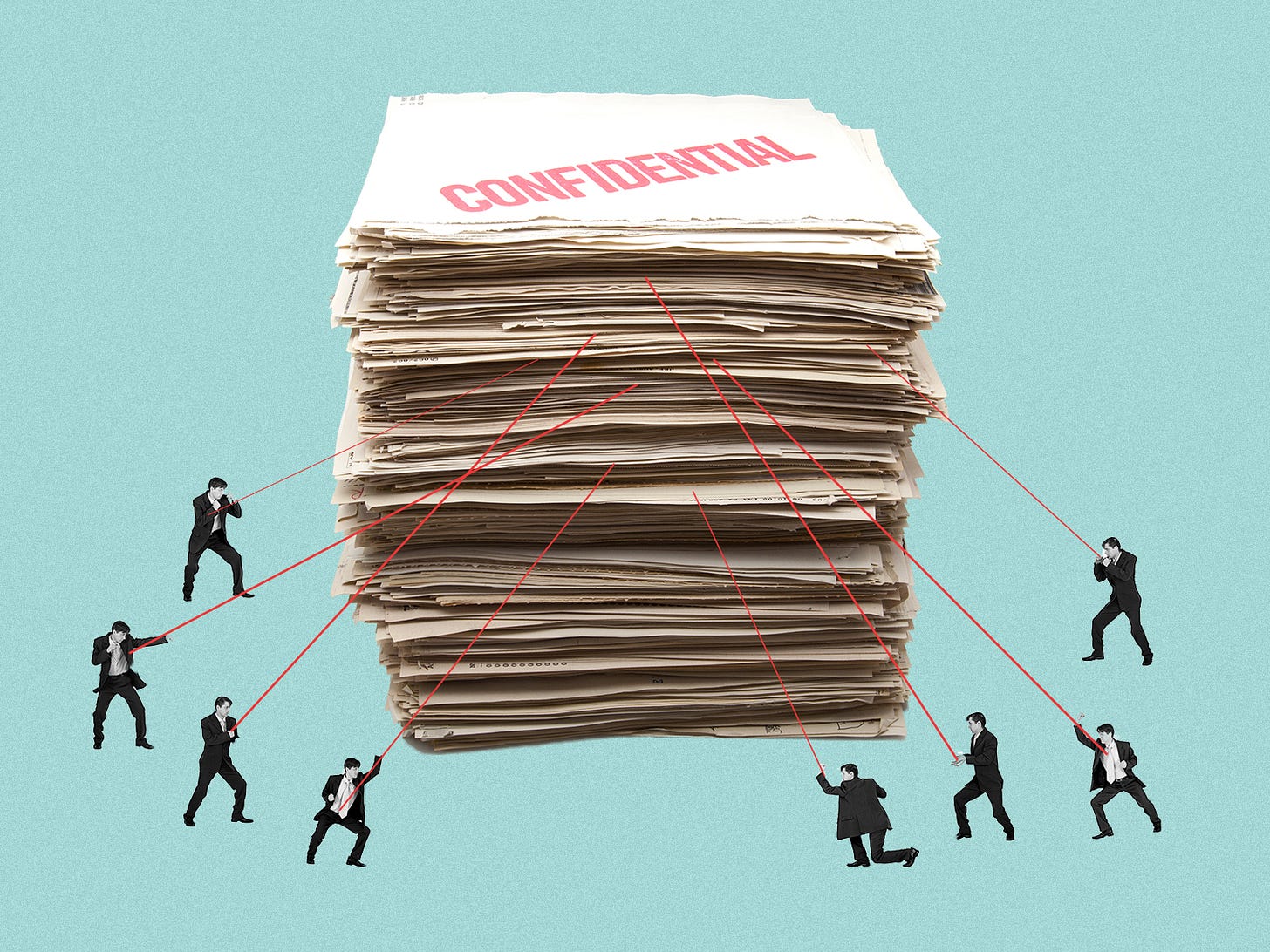What We Already Know About the Mueller Report Should Scare Us
And Congress has a duty to push forward from here.
The Russia probe is too big and too important to be judged by a highlight reel. Yes, there are some clear takeaways from Attorney General William Barr’s summary of the report’s conclusions. One of them is relieving: It’s good news that after thorough investigation, Special Counsel Robert Mueller didn’t establish a conspiracy between the Trump campaign and the Kremlin. If he had, our country would’ve gone from chaos to crisis.
But there’s alarming information in Mueller’s report, too. We know this because the attorney general said so, right in his letter. Barr noted that the report detailed Russia’s election interference activity, “which was designed to sow social discord”—put another way, drive us nuts, divide us, and do longer-term damage than affect just the 2016 campaign. What’s more, the special counsel discovered evidence that President Trump tried to obstruct justice in some manner.
And while it’s a good thing that Mueller didn’t uncover a conspiracy, it’s a bad thing he had reasons to explore the possibility. He exposed crooks and criminals close to Trump, who belonged nowhere near the power of the Oval Office. He made 34 indictments and has secured 7 convictions (so far). They came as he “issued more than 2,800 subpoenas, executed nearly 500 search warrants . . . and interviewed approximately 500 witnesses.” Amid all that work, he may well have found evidence that Team Trump, knowing Russia was interfering, did not break the law but behaved in ways that were were deeply unethical. We won’t know until we read the actual report, which is why there is a “public interest,” as Barr noted, in reading the details.
There are two obvious next steps that should follow Barr’s rundown of the report’s principal findings. The first is that the Attorney General should make the report public. That’s the easy step. Barr committed to doing so “soon” 10 days ago in the update he sent to Sen. Lindsey Graham and Rep. Jerrold Nadler. All that’s left for him to do is follow through—to not “summarize the full report or . . . release it in serial or piecemeal fashion,” but to release it as fully as legal and national security concerns allow him to.
The other step is for Congress to perform oversight, based on what members see in the report. This goes for every member of a relevant committee, regardless of political party. They owe it to the people who elected them to read Mueller’s findings without red- or blue-tinted glasses on. This will be a test of public accountability.
And there will be a number of implications for various congressional committees.
First, there is the basic matter of national security. According to Barr’s letter, Mueller provided a specific account of how Russia, through two separate efforts, tried to interfere with the 2016 election. Members of Congress should study Mueller’s findings carefully and with some urgency. When they’re finished, they should pass legislation that protects our election system from overseas thugs who want to mess with voters’ heads and the system they use to choose presidents. That it’s in America’s interest should be a strong enough reason.
Then there’s the obstruction issue. Barr’s summary raised several questions about it, and it’s the job of elected representatives to seek answers in committee hearings. Among them: Why did Mueller punt the issue? Did he make no determination on obstruction so that Congress, not Barr, would take up the task of making a decision? How did Barr make his decision not to recommend prosecution? Was it because of the merits of the case or because of his views on the proper scope of the president’s power—which a lot of smart constitutional lawyers disagree with?
Barr wrote that the “Special Counsel’s decision to describe the facts of his obstruction investigation without reaching any legal conclusions leaves it to the Attorney General to determine whether the conduct described in the report constitutes a crime.” Maybe that was Barr’s and Deputy Attorney General Rod Rosentein’s prerogative. But that doesn’t deny Congress theirs. From Watergate to the Clinton presidency, obstruction has long been an issue for Congress to explore.
And this doesn’t even touch on the people included in the special counsel’s probe who have been convicted or indicted for federal crimes, or who’ve been part of shady relationships and unpatriotic activity the public knows went down. Put aside the “Steele dossier” for a minute. The Steele dossier isn’t why Paul Manafort is in federal prison. It’s not why Michael Flynn may be headed there soon. It’s not why Roger Stone was arrested on seven federal charges. It’s not how we know that Donald Trump Jr. took a meeting with Russians to get dirt on his political opponent—for crying out loud, he implicated himself in a tweet! As former House Oversight chairman Trey Gowdy said last year, “There is a Russia investigation without a dossier.” As there damn well should’ve been.
When I served in the House of Representatives, I said I believed that no president is above the law—or above the United States Congress. I said it when I opposed President Obama for going around Congress to create the Deferred Action for Childhood Arrivals program. I say it now that a Republican is in office, because President Trump shouldn’t have gone around Congress to fund a border wall that I happen to support. And I’ll say it when the Mueller report comes out.
The bottom line is that Congress should wrestle with the fact that a candidate for president knowingly welcomed and encouraged a foreign enemy of ours to screw with our election.
Criminal? Apparently Mueller says no. Impeachable? That's up to Congress. We’ll see what’s in the report.


